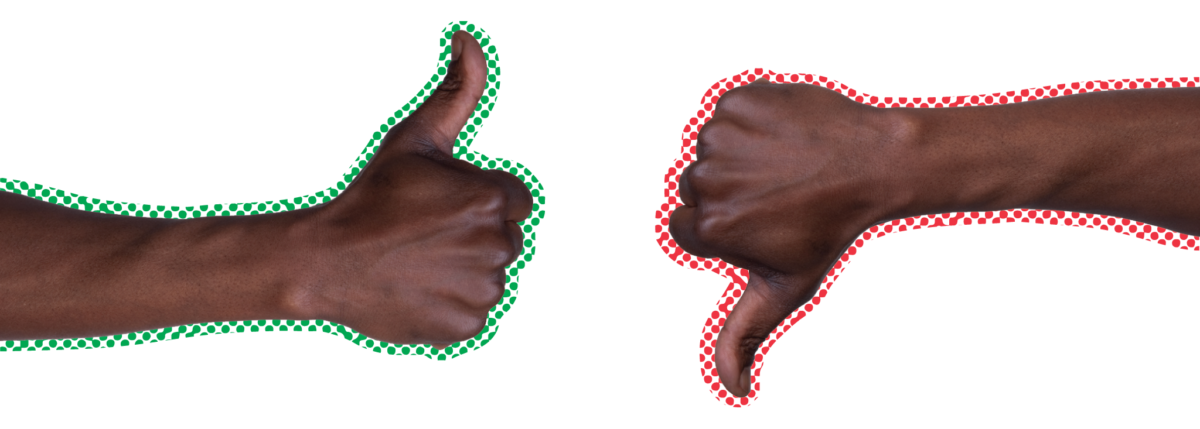My Dos and Don’ts for People Without Diabetes
Managing type 1 diabetes means insulin calculations, getting plenty of exercise and making strategic meal plans. But it also means awkward moments, unnecessary advice and lots of looks from people who don’t live with diabetes.
While we might be well-equipped to take care of our disease, we aren’t always ready for these awkward moments with strangers, friends and family who might not understand what we live with.
Here are the dos and don’ts of diabetes etiquette for those without diabetes, written by a person with type 1 diabetes (T1D).
Do ask questions.
If you’re speaking to someone with type 1 diabetes, ask questions about the condition. I believe that 9 times out of 10, when the question is asked kindly, that the T1D will be happy to answer you. At the end of the day, we’d rather you understand better than continue to walk around with misconceptions.
Don’t ask loaded questions.
Is it the bad type?
So you just have to watch your diet, right?
Did you eat too much sugar as a kid?
When people with T1D hear questions like this, it can be enlightening and frustrating at the same time. Enlightening because I am surprised to hear people still make these assumptions or have these ideas. Frustrating because these people still make these assumptions or have these ideas. Try phrasing a question like, “Can I ask you something so I understand type 1 more clearly?” or “Do you mind telling me more about it?”
Do be supportive.
What does being supportive really mean to you? For someone with type 1 diabetes, it’s nice to know that others sort of understand what’s going on and that they are willing to help if needed. This could simply mean checking in on your friend or helping them find a snack when they are low. Showing your support displays itself in various ways.
Don’t tell us horror stories about your relatives.
The general public tends to have the idea that telling someone with T1D about your grandfather who lost his foot because of diabetes is, I don’t know, helpful? Most patients diagnosed with T1D are aware of the possibility of complications and their effects on the body caused by T1D. Please do not feel like it is your duty to remind us of the things that can happen to us (or may have already started) when you don’t know! Bring this into the conversation if the person with T1D has started talking about it or asks you a question.
Do help us be prepared for lows.
Whether you’re a spouse, friend, or coworker, helping us be prepared for lows is such a kind gesture. That simply means knowing where snacks or low treatments are in the home or office and helping us get them when we need them.
Don’t shrug us off simply because what’s happening is invisible.
Type 1 diabetes is an autoimmune disease that can have some serious consequences. The scary part: it’s mostly invisible. Other than my insulin pump and continuous glucose monitor (CGM) and their respective sites, you cannot tell that people with T1D are any different than you—with the exception of seeing us test our blood sugar or give a manual injection with a syringe or insulin pen.
I think one of the worst feelings I encounter having this condition is feeling like it means nothing to those around me—and this is usually solely because of ignorance or lack of understanding. Please don’t shrug it off as the “take insulin, watch what you eat” disease, because it is so much more complex. Be mindful of those with T1D, and be willing to offer a helping hand if they need something.
Do help us stop the stigma.
If you’ve been around a T1D for some time and have learned enough about it, then help us stop the stigma. When you hear comments or jokes about it, do your best to raise awareness for what is true about this condition.
Don’t ignore the jokes.
I think a huge part of raising awareness for type 1 diabetes is simply stopping jokes and memes dead in their tracks. I think people will remember when you stop them in that moment and say “Hey, that actually isn’t how it works” or “It’s actually a lot more serious than that.”
At the end of the day, there are a few things you should and shouldn’t do as a good friend, partner, or stranger to the millions of people affected worldwide by type 1 diabetes. Hopefully this list will help you do just that.
Check out another piece by Erika—Tips for Managing T1D in the Workplace.





